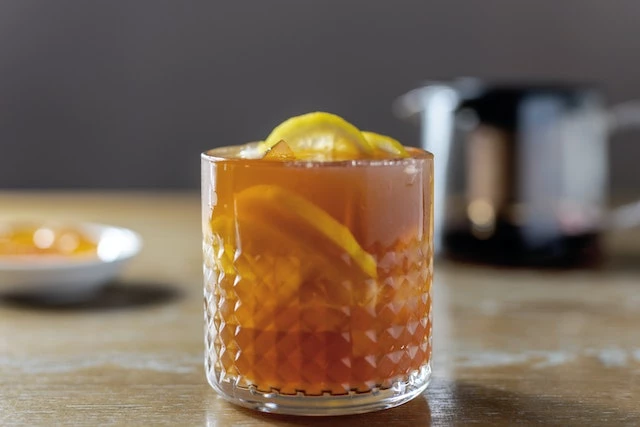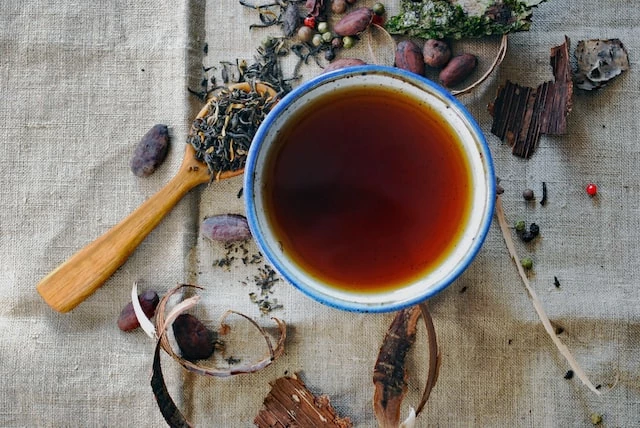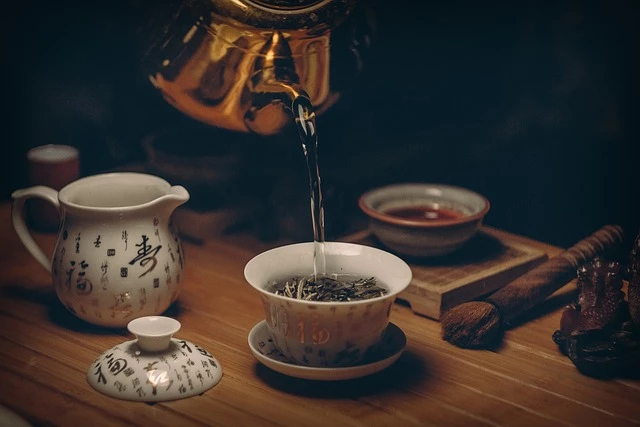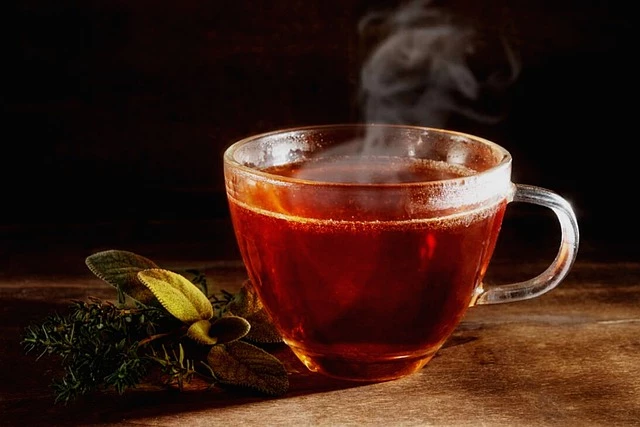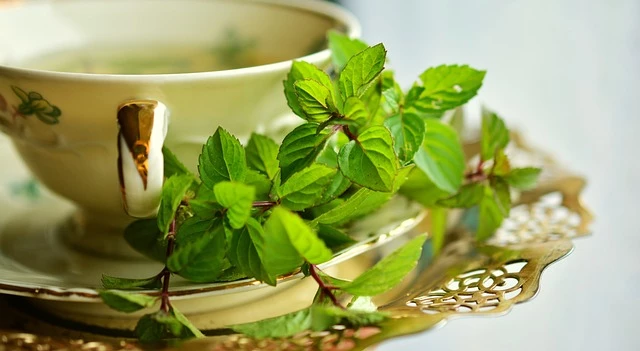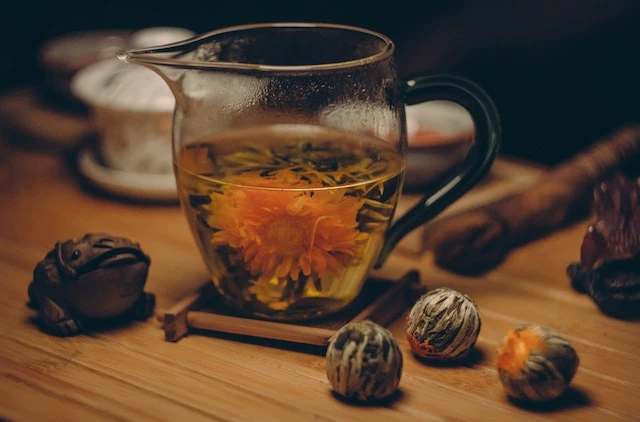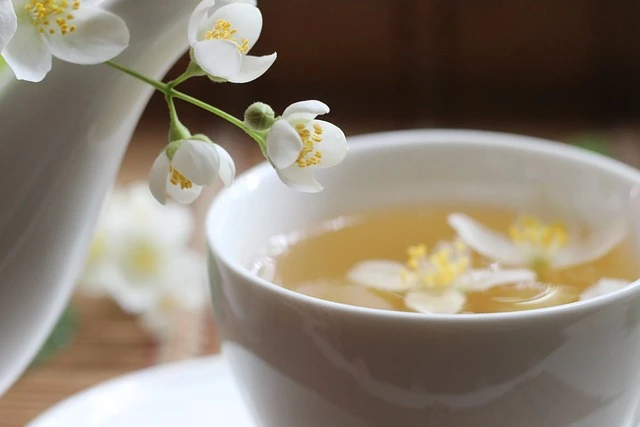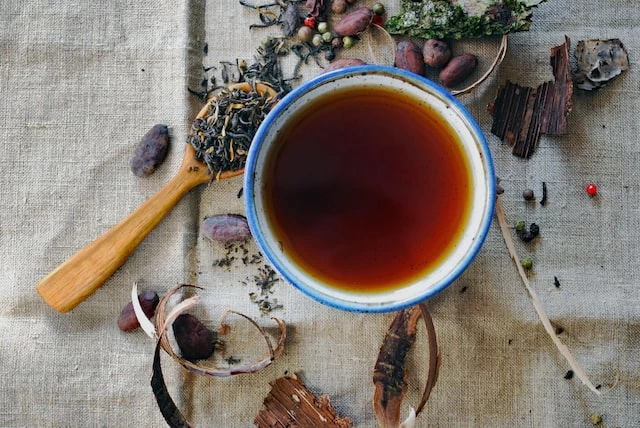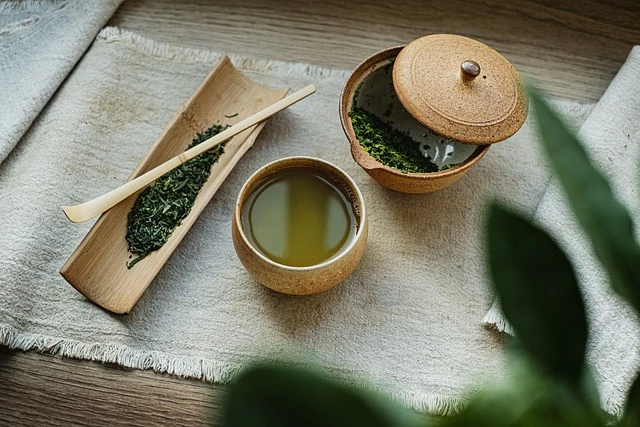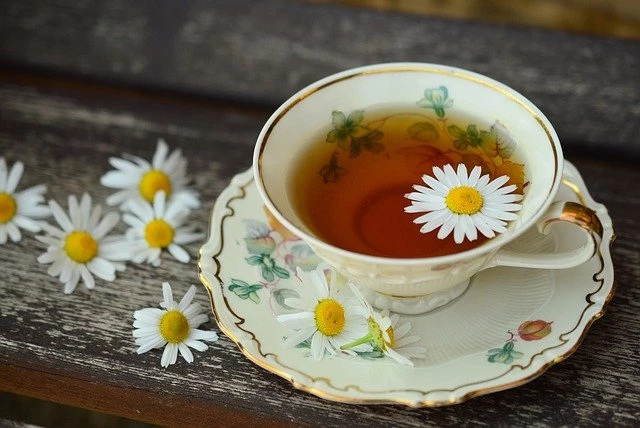Caffeine in Tea vs Coffee?
Jan 13 2023 Tea Caffeine Content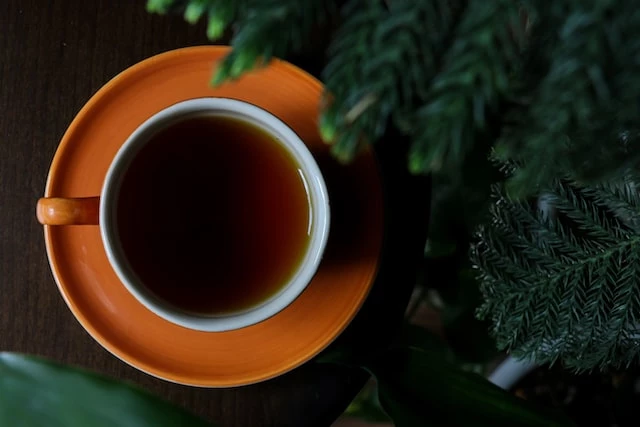
Caffeine could be a stimulant that’s normally displayed in both tea and coffee. The sum of caffeine in tea and coffee can shift depending on the sort of plant, how it was developed, how it was handled, and how it was brewed. In common, a glass of coffee contains more caffeine than a container of tea. A container of coffee can contain anyplace from 95 to 200 milligrams of caffeine, whereas a container of tea contains around 14 to 60 milligrams. Be that as it may, the way in which caffeine is extricated and expended can moreover shift between tea and coffee. For case, coffee is ordinarily brewed as a beverage, whereas tea leaves are soaked in hot water. This may result in numerous sums of caffeine being extricated from the takes off. Moreover, a few sorts of tea, such as matcha, are expended in powdered shape, which can lead to a better concentration of caffeine compared to soaking tea clears out.
What is Caffeine?
Caffeine may be a central anxious framework stimulant. It is the foremost broadly expended psychoactive substance in the world. It is found in an assortment of plants, such as coffee beans, tea clears out, kola nuts, and cacao cases, and is frequently included in delicate drinks, vitality drinks, and drugs.
Caffeine’s impacts can shift depending on the person and their resilience level. Direct caffeine admissions, which is for the most part considered to be around 200-300 milligrams per day, can result in moved-forward concentration, expanded vitality, and diminished weakness. In any case, intemperate caffeine admissions, which are for the most part considered to be over 400 milligrams per day, can lead to negative side impacts such as uneasiness, sleep deprivation, and an expanded heart rate.
Additionally, normal utilization of caffeine can lead to resilience and reliance. Resilience alludes to the method by which the body gets to be usual to the nearness of caffeine, coming about in a diminished reaction to its impacts. Reliance happens when a person creates a physical or mental requirement for caffeine in arrange to feel ordinary. People who are subordinate to caffeine may encounter withdrawal side effects when they halt utilizing it, such as migraines, weakness, and fractiousness.
It’s worth noticing that Caffeine is a sedate and it’s vital to devour it in control, too it’s not recommended for pregnant ladies, children, and individuals with certain well-being conditions to expend caffeine in tall sums
What are the Effects of Caffeine?
Caffeine has a variety of effects on the body, both positive and negative.
Positive effects:
- Alertness and Energy: Caffeine is a stimulant, and one of its main effects is to increase alertness and energy levels. It does this by blocking the action of adenosine, a neurotransmitter that promotes feelings of drowsiness and fatigue.
- Improved Cognitive Function: Caffeine can improve cognitive function, including memory, focus, and reaction time. Studies have shown that caffeine consumption can improve performance on tasks such as memory recall, attention, and reaction time.
- Increased Physical Performance: Caffeine can also improve physical performance by increasing adrenaline levels, which can lead to an increase in strength and endurance.
- Pain relief: Caffeine can act as a pain reliever, studies have shown that caffeine consumption can reduce the perception of pain, especially in relation to headaches, migraines, and menstrual cramps.
Negative effects:
- Insomnia: Caffeine can cause insomnia, especially if consumed in the late afternoon or evening. It can also disrupt sleep patterns and lead to poor sleep quality. Check out all the teas that will help with insomnia.
- Anxiety: Caffeine can cause or worsen anxiety, especially in people who are predisposed to anxiety disorders. Check out all the teas that will help with anxiety.
- Increased Heart Rate: Caffeine can increase heart rate, blood pressure, and stress hormones, which can be dangerous for people with heart conditions.
- Dependence and Withdrawal: Regular caffeine use can lead to tolerance and dependence. When an individual stops consuming caffeine, withdrawal symptoms such as headaches, fatigue, and irritability may occur.
- Gastrointestinal Issues: Caffeine can cause stomach discomfort and can worsen symptoms of acid reflux or heartburn.
How Much Caffeine is in Coffee?
The amount of caffeine in coffee can shift depending on a number of variables, counting the sort of coffee bean, how it was developed, how it was prepared, and how it was brewed.
On average, an 8-ounce (240-milliliter) container of brewed coffee contains around 95 milligrams of caffeine. In any case, the sum can extend from approximately 50 milligrams in a glass of decaffeinated coffee to around 200 milligrams in a few claim-to-fame brews.
The foremost commonly utilized coffee beans, Arabica and Robusta, have diverse caffeine levels. Arabica beans have less caffeine substance than Robusta beans, which can contain 2.7ffeine compared to Arabica beans which contain 1.5 caffeine.
It’s worth noticing that a few vitality drinks, delicate drinks, and medicines moreover contain caffeine, so it’s imperative to keep track of your add-up to caffeine admissions from all sources to remain inside secure limits.
Also, it’s important to be beyond any doubt that the FDA has not set a prescribed restrain for caffeine admissions for solid grown-ups, but it proposes direct caffeine admission of up to 400mg per day for solid grown-ups, typically generally comparable to 4 mugs of brewed coffee. In any case, a person’s resistance to caffeine may shift, and a few individuals may be more touchy to caffeine than others which may involve negative impacts at lower dosages.
How to Reduce Caffeine in Coffee?
There are several methods to reduce the caffeine content in coffee:
- Brew Time: The longer coffee is brewed, the more caffeine is extracted from the grounds. To reduce caffeine content, brew coffee for a shorter amount of time.
- Grind Size: The finer the grind, the more surface area is exposed and the more caffeine is extracted. To reduce caffeine content, use a coarser grind.
- Bean Type: As mentioned before, Robusta beans have higher caffeine content than Arabica beans. Choosing Arabica beans can help to reduce the caffeine content of the coffee.
- Water Temperature: Lower water temperature can extract less caffeine from the beans. To reduce caffeine content, use a lower water temperature when brewing coffee.
- Blending: Mixing decaffeinated coffee with regular coffee can reduce the overall caffeine content of the final brew.
- Cold brew: Cold brewing coffee can reduce the caffeine content by up to 67% compared to hot brewing.
- Caffeine Extraction: If you prefer to have the same coffee you love but with less caffeine, you can use caffeine extraction methods like the Swiss Water Process or the Carbon Dioxide Process.
It’s worth noting that these methods may also affect the taste and quality of the coffee, and it’s important to find the right balance that works for you. Additionally, it’s also important to keep in mind that decaffeinated coffee still contains some caffeine and you should always check the label or ask for the exact caffeine content.
How Much is the Caffeine in Tea?
The caffeine content in tea can vary depending on the type of tea, how it was grown, how it was processed, and how it was brewed. In general, a cup of tea contains less caffeine than a cup of coffee. A cup of tea contains around 14 to 60 milligrams of caffeine, while a cup of coffee can contain anywhere from 95 to 200 milligrams of caffeine.
Here is an overview of the caffeine content in different types of tea:
Black Tea
Black tea is the most common type of tea consumed worldwide and typically contains the most caffeine. The average caffeine content for a cup of black tea is about 47 milligrams.
Green Tea
Green tea is less processed than black tea and typically contains less caffeine. The average caffeine content for a cup of green tea is about 28 milligrams.
Oolong Tea
Oolong tea falls in between green and black tea in terms of caffeine content. The average caffeine content for a cup of oolong tea is about 37 milligrams.
White Tea
White tea is the least processed of all teas and typically contains the least caffeine. The average caffeine content for a cup of white tea is about 6 milligrams.
Herbal Tea
Herbal teas are not made from the Camellia sinensis plant and do not contain caffeine. However, some herbal teas may contain ingredients such as guarana or yerba mate that do contain caffeine.
Matcha
Matcha tea is a type of green tea that is consumed in powdered form and has a higher caffeine content than steeped green tea leaves. The average caffeine content for a cup of matcha is about 35 milligrams.
How to Reduce Caffeine in Tea?
There are several methods to reduce the caffeine content in tea:
- Steeping Time: The longer tea leaves are steeped, the more caffeine is extracted from the leaves. To reduce caffeine content, steep the leaves for a shorter amount of time, typically 2-3 minutes is enough.
- Temperature: Lower water temperature can extract less caffeine from the leaves. To reduce caffeine content, use a lower water temperature when brewing tea.
- Using fewer leaves: Using fewer tea leaves will result in less caffeine extraction, and you can adjust the number of leaves to your preference.
- Blending: Mixing decaffeinated tea with regular tea can reduce the overall caffeine content of the final brew.
- Cold brewing: Cold brewing tea can reduce the caffeine content by up to 60% compared to hot brewing.
- Removing the leaves: Once the tea has been steeped, removing the leaves from the water can also reduce the caffeine content.
Is Caffeinated Tea Healthier Than Tea?
Caffeine, in direct sums, can have a few well-being benefits such as moving forward cognitive work, expanding vitality, and diminishing weariness. In any case, intemperate caffeine admissions can have negative impacts on well-being.
Tea, in common, is considered to be a solid refreshment due to its tall antioxidant substance and potential well-being benefits. Both caffeinated and decaffeinated tea contains cancer prevention agents, but the well-being benefits may be diverse.
Caffeinated tea, such as dark and green tea, contains caffeine and L-theanine, which can offer assistance to make strides in cognitive work and diminish stretch. Considers have too appeared that tea utilization, especially green tea, is related to a lower chance of heart illness and certain sorts of cancer.
Decaffeinated tea still contains cancer prevention agents and other advantageous compounds, but it doesn’t have the cognitive and mood-enhancing impacts of caffeine.
It’s worth noticing that the well-being benefits of tea will depend on the sort of tea and the way it is devoured. For illustration, including sugar or drain to tea can refute a few of the potential well-being benefits. Also, it’s vital to expend tea, whether caffeinated or decaffeinated, in control.
In common, it’s best to devour a tea that fits inside your day-by-day caffeine admissions constraint and to consider other components like your individual well-being, resilience, and inclination.
The Final Thoughts
In conclusion, caffeine could be a normal happening stimulant found in both tea and coffee. The amount of caffeine in tea and coffee can shift depending on the sort of plant, how it was developed, how it was prepared, and how it was brewed. In common, a container of coffee contains more caffeine than a glass of tea. Devouring caffeine in direct sums can have a few well-being benefits such as made strides in cognitive work and expanded vitality, but intemperate caffeine admissions can have negative impacts on well-being. Tea, in common, is considered to be a solid refreshment due to its tall antioxidant substance and potential well-being benefits. In any case, the well-being benefits of tea will depend on the sort of tea, the way it is expended, and the individual’s resilience to caffeine. It’s vital to expend tea and coffee in control and to consider other components such as individual well-being and inclination.
Also, read our other articles about caffeine content!
Does Tea Have Caffeine?
Does Black Tea Have Caffeine?
Does Green Tea Have Caffeine?
Does Herbal Tea Have Caffeine?
Does White Tea Have Caffeine?
Does Rooibos Tea Have Caffeine?
Does Oolong Tea Have Caffeine?
Does Pu erh Tea Have Caffeine?
Does Sweet Tea Have Caffeine?
Does Iced Tea Have Caffeine?
Does Yerba Tea Have Caffeine?
